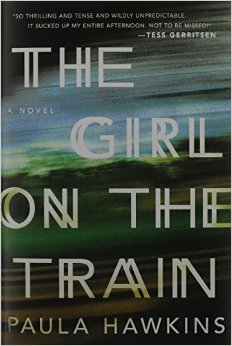Discuss the portrayal of insanity in Wide Sargasso
Sea.
Thesis:
Within the context of the novel, Jean Rhys presents insanity or madness as a social phenomenon defined by a defiance of cultural and
social norms rather than perhaps a true illness of the mind. Annette and
Antoinette are both driven to madness by an inherently patriarchal society and
racial tensions as a result of colonial attitudes and values.
Topic Sentence 1:
At the centre of the
story lies a patriarchal society that promotes the oppression of women which
ultimately served as a contributing factor
to Annette's and Antoinette's madness.
Evidence:
- Women are oppressed through the legal system that is designed to benefit men
- Seen through Antoinette's marriage to Rochester
- “You want her money but you don’t want her. It is in your mind to pretend she is mad. I know it.The doctors say what you tell them to say. The man Richard he say what you want him to say -- glad and willing too, I know. She will be like her mother” - Christophine, page 145
- Annette was forced to marry Mr. Mason because she needs economic protection
- Her marriage is was ultimately drove her to madness as Mr. Mason did not listen to her and left her to dwell in her sorrow and mental breakdown
- “My mother whom you all talk about, what justice did she have? My mother sitting in the rocking chair speaking about dead horses and dead grooms and a black devil kissing her sad mouth.” - Antoinette, page 133
- “They drive her to it. When she lose her son she lose herself for a while and they shut her away. They tell her she is mad, they act like she is mad. Question, question. But no kind word, no friends, and her husband’ he go off, he leave her…” - Christophine
Topic Sentence 2:
Edward Rochester's
role as a colonizer drives Antoinette to madness as her culture is deemed
subaltern and she is forced to endure the hegemonic values of her husband.
Evidence:
- Rochester is unable to understand Antoinette's culture and therefore resents it and beliefs that it is subaltern
- He grows to resent her "alien" nature and looks
- Antoinette's actions, looks, and beliefs differ from the traditional English expectations and values that Rochester is accustomed to
- Rochester attempts to conform Antoinette to what he considers a more proper way of life
- Starts calling her Bertha
- This resentment leads him to deem here as "mad"
- It is in your mind to pretend she is mad. I know it. The doctors say what you tell them to say. The man Richard he say what you want him to say -- glad and willing too, I know. She will be like her mother” - Christophine, page 145
Topic Sentence 3:
The racial tension
in the West Indies post-emancipation created an environment of hostility which also
prompted Annette and Antoinette's identity crisis and eventual mental
breakdowns.
Evidence:
- Racial tension caused the fire at Coulibri which resulted in the death of Pierre
- Annette is driven to madness after this
- Antoinette faces an identity crisis as she is descended from slave-owners
- Creole
- Not rich English and not a poor black
- Hybridity
Topic Sentence 4/Conclusion (?):
Characters within
the novel are not inherently mad but instead, they are driven to madness
through a range of traumatic events and the propagation of hegemonic and
patriarchal attitudes.
Evidence:
- “They drive her to it. When she lose her son she lose herself for a while and they shut her away. They tell her she is mad, they act like she is mad. "
- Antoinette goes insane and experiences an eventual mental breakdown after long term exposure to her husband's values
- Stripped of her identity
- Antoinette locked in the attic
- Annette is driven mad after be constantly called mad
- Often, the characters have completely understandable reasons for being upset yet they are deemed "hysterical" as typical in Victorian era









0 comments:
Post a Comment